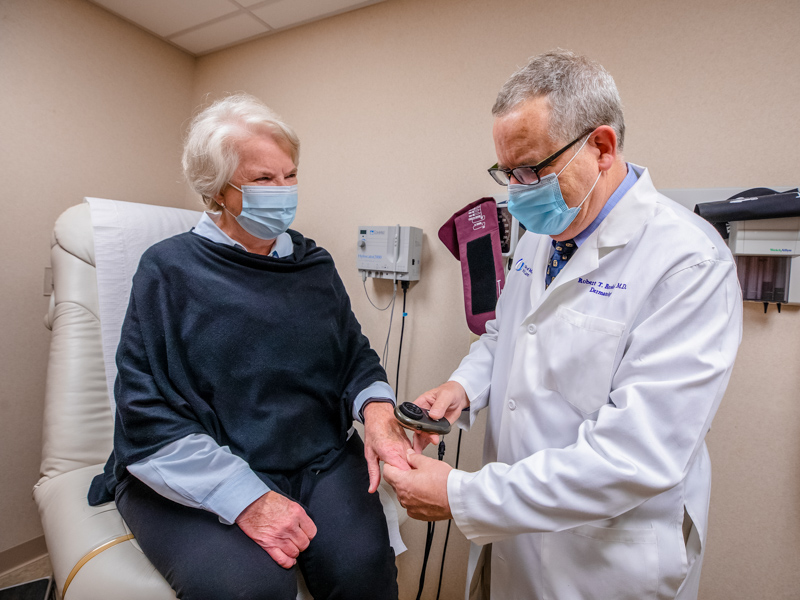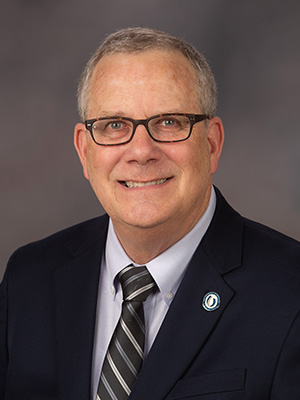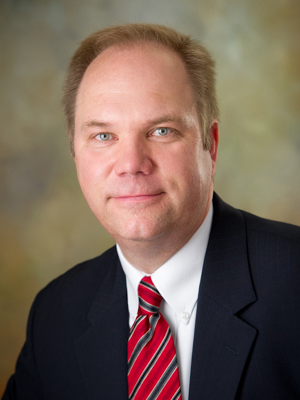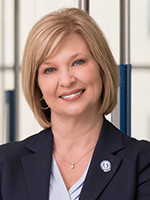Brodell tapped to lead American Dermatological Association

As the new president of the American Dermatological Association, Dr. Robert Brodell will select an area surrounding diseases of the skin as a focus of his leadership.
But for now, he continues to champion a priority that’s important to patients in Mississippi and nationally: access to care.

“The saddest thing I see are people who didn’t have access to dermatological care who delay treatment of things that would have been simpler and easier to treat had they had the right treatment for the condition, at the right time,” said Brodell, professor and chair of the Department of Dermatology at the University of Mississippi Medical Center.
Lack of access is especially acute in rural areas, and Mississippi is no exception. Brodell brings to his presidency vast experience in establishing routes to care for those most in need, from clinics placed in rural areas to using teledermatology to connect both patients and doctors in small communities that don’t have a dermatologist.

“Dr. Brodell has ensured that practical topics are always foremost in our meetings, and that patient care issues remain a key focus,” Dr. Tom Helm, a clinical dermatologist in Buffalo, N.Y., said of Brodell, who just finished serving as the ADA’s secretary-treasurer. Helm is now serving as assistant secretary-treasurer.
Brodell “is very concerned about making sure that underrepresented minority groups as well as a wide variety of patients can avail themselves of the latest techniques and advances,” Helm said. “He also brings lots of enthusiasm, and he’s always curious to learn about different topics.”
Brodell is the second UMMC physician to recently become president of a national association. Dr. J. Martin Tucker, professor and chair of the Department of Obstetrics and Gynecology, earlier this year assumed the presidency of the American College of Obstetricians and Gynecologists.
The ADA’s secretary-treasurer is entrusted with a significant portion of the day-to-day management of the organization. In November, Brodell will be installed as president, an office that entails setting strategic goals for the coming year.
“I’ve always seen myself as a servant leader, whether it be in my department or in my community, or on the national level in the area of dermatology,” said Brodell, who also is a professor of pathology and was in private practice for 27 years in Ohio before joining the UMMC faculty in 2012.
Brodell chaired both dermatology and pathology for almost two years while that department searched for a new chair. In recognition of his many contributions, Brodell in June was installed as a Billy S. Guyton Distinguished Professor, a title that celebrates scholarship and serves as an inducement for honorees to continue their academic work for the institution.
Dr. LouAnn Woodward, vice chancellor for health affairs and dean of the School of Medicine, said Brodell’s appointment as president of such a prestigious organization honors not only his skillful leadership and community heart but also raises UMMC’s profile on the national stage.

“Bob has been an exceptional leader, and his focus on caring for underserved communities is admirable and aligns with the Medical Center’s commitment to creating A Healthier Mississippi,” Woodward said. “I congratulate him on this well-deserved appointment. He makes us all proud to be a member of the UMMC community.”
Brodell’s busy patient practice is the backdrop for innovation in caring for those who most need it. “Our department has a clinic at Rolling Fork High School, and one day each month, we take care of skin problems in one of the most underserved parts of the state,” Brodell said.
“We’ve worked aggressively on teledermatology, working with primary care providers to do consultations through telehealth ‘store and forward,’ and we’ve worked on Project Echo to teach primary care doctors about common dermatological conditions and the best ways to treat them.”
Brodell is a UMMC leader in expanding store-and-forward telemedicine, which entails collecting clinical information from patients and sending it electronically, even on a cell phone, to another provider for evaluation. That information often includes a patient’s medical history, documents such as laboratory reports, and image, video and/or sound files.
Brodell’s department established a dermatology office in Louisville staffed by Dr. Adam Byrd. “He’s teaching our medical students and dermatology residents – and he’s 90 miles away in Louisville,” Brodell said. “That’s been a very effective way to interest students in careers in those areas. That clinic is serving a huge need. Instead of patients having to travel to Jackson, we have a full-time faculty member right there.”
Brodell, who serves as associate editor of the Journal of the American Academy of Dermatology, sees his connection with the ADA as “an opportunity to serve and learn.
“I never do things where I don’t learn something. There are opportunities to meet people on the national level, and that helps stir the pot on the best ways to care for patients, run a residency, or serve the community in other ways.”
The ADA’s annual meeting gives dermatology leaders the chance to discuss research and patient care, and it allows young dermatologists the opportunity to rub elbows with the giants in their field. “There’s never a time when I’m not talking to other people from around the country, letting them know what I’m doing and hearing their ideas to make what we are doing better,” Brodell said.
“Dr. Brodell is willing to spend time mentoring more junior colleagues and medical students and to share his expertise,” Helm said.
He noted that Brodell recently received a Certificate of Appreciation for Humanitarian Dermatology from the International League of Dermatological Societies. “He worked on an outbreak of monkey pox and was helpful in evaluating a cluster of it in Nigeria,” Helm said.
“He develops excitement for lifelong learning. He’s a man of many talents.”


